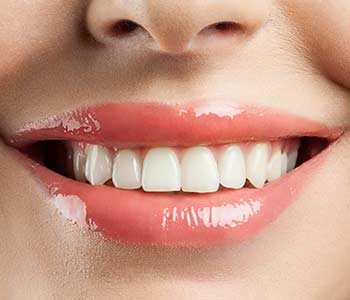By 2024, Grand View Research reports the almost $4 billion global dental implants market will approach $7 billion. In the U.S. alone, more than 5 million dental implants are placed each year. While there is archaeological evidence of tooth replacement going back thousands of years in China and Egypt — with jade and carved stones standing in for tooth roots — implants as we know them are a relatively recent phenomenon, dating back to the 1970s. So, you may be wondering why dental implants are becoming so popular in Nashua NH and far beyond our borders, especially in such a (comparatively) short timeframe. Just as Nashua Cosmetic and Restorative Dentistry’s patients know the many benefits of implant-supported prosthetics, there are also many factors that have made implants among dentistry’s “most wanted.”

Patients are embracing modern prosthetics.
The acceptance level for dental implants is on an upswing, partly, because of the time-worn limitations associated with removable prosthetics. Recall a family member complaining about the hassles of conventional “false teeth”; the cleaning, the rubbing against the gums, the “fake” appearance, and embarrassing slippage? When prosthetics, be it crowns or dentures, are mounted on dental implants rooted in the jaw, they don’t encroach delicate tissues. When the natural structure is replicated, lifelike appearance and healthy function are also replicated.
Since dental implants were first placed, several beneficial advancements have contributed to a greater acceptance of modern tooth replacement, including innovations in dental materials and technologies that aid in precision planning and implant placement. At Nashua Cosmetic and Restorative Dentistry, Dr. Judith Whitcomb use the latest, sophisticated tools to aid in your successful treatment and outcomes, from precision intraoral cameras to digital X-rays.
A superior way to restore oral health following an injury.
Researchers also point to dental injuries caused by accidents on the road and while playing sports as a factor that is driving the need for lifelike tooth replacement. More than 10 million people worldwide are injured each year due to road accidents. Not all teeth can be preserved with root canal therapy or by re-implanting the knocked-out tooth.
Before dental implants rose to prominence, those patients who couldn’t be successfully treated with a root canal procedure or by reattaching a tooth forced from its socket would have one option: the dental bridge. Dental bridges require the removal of natural tooth structure from both teeth on each side of the gap. By reducing the size of these neighboring teeth, there is room for them to be crowned. The crowns provide support to the new, replacement tooth (pontic). The replacement tooth and crowns are fused together and bonded as one piece to the neighboring, natural teeth.
A replacement tooth that is supported by an implant doesn’t require the removal of the natural structure from otherwise healthy, neighboring teeth. That’s because the tooth is stabilized in the mouth by the implant and doesn’t rely on nearby crowned teeth for strength.
Historically, patients who had several teeth that couldn’t be “saved” with root canal treatment or other means, relied on either multiple bridges or conventional dentures. Both bridges and dentures require special tools, products, and considerations for cleaning and “maintenance.” Interdental brushes or a floss threader may be needed to properly clean underneath the bridge and crowded spaces between the pontic and crowns.
Like pontics in bridges, dentures also sit on top of the gums. They aren’t rooted in the mouth like implants and the crowns or implant-retained dentures that sit on top of them. For this reason, adhesive or other products may be required to keep dentures stabilized in the mouth and to avoid embarrassing and uncomfortable slipping. The denture must be soaked and cleaned as advised by your dentist, whereas implant-retained dentures are no-hassle. They’re designed to be cleaned like natural teeth.
For an attractive, healthy smile that lasts.

With brushing, flossing, and professional visits to Dr. Whitcomb, your implant-supported crowns and dentures will keep going right alongside you!
People often overlook the longer-term consequences of missing teeth. Case in point:
- When you have teeth, the force from chewing and other functions get transferred from the teeth to the roots, and into the jawbone. In this manner, the underlying bone and bone structure remain strong; however, when teeth are lost, this transfer of force and stimulation to underlying bone is also lost.
- When bone loss arises, it can alter how dentures fit and your appearance.
- This destructive process is also the reason dentures must be relined and eventually replaced over time.
Since crowns and dentures supported by implants are designed like natural teeth, bone strength is preserved.
Make an investment in your smile and health and join the millions of dental implants “fans” worldwide. Call (855) 363-3793 to schedule your appointment at Nashua Cosmetic and Restorative Dentistry.








